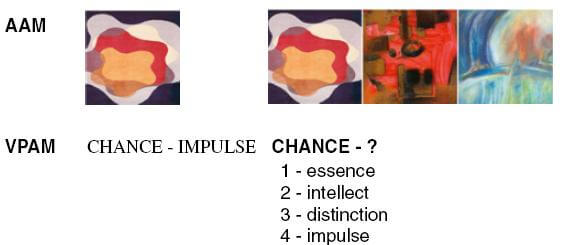Scientists at the University College of London, Harvard University, and elsewhere have discovered that not only is the part of your brain responsible for recognizing faces different than the part that recognizes words or art, it is highly effected by your genes. Dr. Brad Duchaine (UCL) and colleagues studied nearly 300 twins (identical and fraternal) by giving them a series of recognition tests. On the Cambridge Face Memory Test (CFMT), identical twins had scores that correlated very well – 0.7, while non-identical twins had a much lower correlation – 0.29. Similar tests for word and abstract art recognition did not show such high correlations. According to their paper published in PNAS, researchers think facial recognition is an unusual phenomenon, a “highly specific cognitive ability that is highly heritable.” This research could lead to a search for those facial recognition genes, possibly in pursuit of a treatment for prosopagnosia and related conditions. Just as importantly, it sheds light on how our genes shape our brain mechanisms, and how we might be able to alter/improve those mechanisms through genetic manipulation.

The quest for augmenting human intelligence is a fierce one. Our modern civilization is based on years of school attendance – nominally in pursuit of making smarter workers and citizens. It goes beyond that, however: we don’t just want to get smarter through hard work, we want an easy fix. Students regularly use nootropic drugs, herbal supplements are toted as keeping your mind young, and we continually report on studies that hope to find which vitamins and minerals are essential to brain health.
Yet the 21st century approach to making smarter humans is probably going to be genetic in nature. We’ve seen how a single manipulated gene can improve memory and cognition in rats. Now, the CFMT twin study suggests that genes are also responsible for one of our most basic social skills: recognizing faces. Politicians and business executives everywhere would line up around the block if a genetic therapy could be developed to augment facial recognition skills. There’s no sign that such a therapy would be possible yet, but this research suggests that the performance of at least one brain mechanism (possibly many more) is determined by our genes. Which parent doesn’t want a smarter child? Chalk this up as another pressure on society to begin producing designer babies.
It’s pretty rare for us bloggers to be able to participate in the scientific research we report on. Luckily, the CFMT is available to take online. It only asks for a minimum of identifiable information, and takes 5-10 minutes to complete. All you do is study some computer generated faces (like those seen above) and then recognize them in a line up. Pretty simple, and kind of fun. The test is available via Faceblind.org – part of a research partnership between Harvard and UCL interested in prosopagnosia.
I haven’t been able to find online versions of the word recognition and art recognition tests given to the twins (and 1500+ non-twin volunteers). The PNAS paper does show a typical question for each however:

It will be interesting to see if this research spawns a dedicated search for the genes responsible for improved (or impaired) facial recognition. Certainly growing databases of genetic samples, and the ever decreasing costs of whole genome sequencing makes that search a reasonable possibility. As we find other heritable cognitive abilities, similar work can be performed. Exhaustive studies of our genes may lead to a better understanding of the ‘genotype of cognition’.
Speaking of studies, why don’t we see how Singularity Hub readers stack up on the facial recognition scale? Take the Cambridge Face Memory Test and post your scores in the comments section. We can get a leader board started. May the best genes win!
[image credit: PNAS, Faceblind]
[sources: Faceblind, PNAS, UCL, Harvard]


